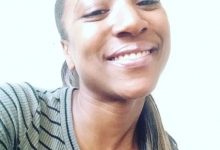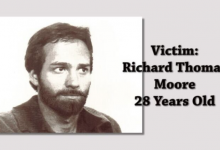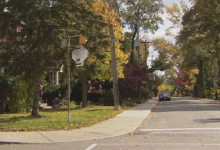Security footage retrieved from highrise where Toronto woman fell to her death
Ontario’s police watchdog says it has reviewed security camera footage and interviewed the officers who were at the Toronto highrise where 29-year-old Regis Korchinski-Paquet fell to her death — after what her family says was a 911 call that went terribly wrong.
But neither the footage nor the interviews will be made public, for now.
“While the investigation is ongoing, the details … will not be released in an effort to ensure the memories of other potential witnesses are not tainted,” the Special Investigations Unit (SIU) said in a news release Monday.
The SIU said it has interviewed six officers and four civilian witnesses. It expects to interview the family later this week.
The update comes after thousands of people took to the streets on Saturday to demand answers about the death of Korchinski-Paquet, who was black, and to protest the deaths of unarmed black people at the hands of police.
Questions have swirled since Korchinski-Paquet’s death with her family, community advocates and various politicians asking what exactly happened in the moments leading up to her 24-storey fall from the balcony of her family’s apartment.
An online petition calling for transparency in the investigation has amassed over 161,000 signatures.
Concerns about role of race
Korchinski-Paquet’s relatives have said they worry race played a role in her death too, citing the cases of Andrew Loku in 2015 and of D’Andre Campbell who was fatally shot by police in nearby Brampton, in April, after what the SIU called a “domestic situation.” Campbell’s family said he suffered from mental illness.
“The family is extremely concerned that in recent times people with mental health distress issues across North America are ending up dead after interactions with the police,” their lawyer Knia Singh said last week.
A CBC News investigation found black people made up 36.5 per cent of fatalities involving Toronto police, despite accounting for just 8.3 per cent of the city’s population, in the period from 2000-17.
Korchinski-Paquet was an active member of her church, a talented gymnast and proud of her Ukrainian and Nova Scotian roots, her family’s lawyer said.
In the past five years, however, she began experiencing epilepsy, with the family sometimes requiring help from police, according to Toronto police Chief Mark Saunders.
Saunders has said police were called to the apartment where Korchinski-Paquet lived with her family on May 27 by multiple reports of an assault.
Two of those calls stated that a knife was involved, according to the chief, but the family has said there was no assault underway or knife present when police arrived.
Korchinski-Paquet, her brother and mother met police in the hallway of their apartment, Saunders said, and “words were exchanged” between her and officers.
Not long afterward, she asked to enter the apartment unit to use the bathroom. Police followed her inside, but did not allow her mother or brother to enter, the family has said.
Within a minute or two, Singh said, the family heard a commotion inside the apartment.
“Mom, help. Mom, help,” were the final words her mother would hear her say before they heard silence, according to the family. Police officers confirmed minutes later Korchinski-Paquet was dead.
In the immediate aftermath, Korchinski-Paquet’s mother and cousin took to social media in a series of emotional video statements pointing fingers at police, saying they believed she had been pushed.
Singh has since said those accusations would not be part of the family’s official statement, but that they would instead wait for the evidence before coming to any further conclusions.

Calls to fund body cameras
At a news conference last week, Korchiniski-Paquet’s mother, Claudette Korchinski-Beals, said she’d sought help from the police for her daughter before, but that never had so many officers turned out as they did Wednesday. The family’s lawyer has said five to eight officers were present.
Toronto’s police chief revealed Friday police did not send a crisis intervention team to the scene. Saunders said weapons-related calls take the highest priority, so front-line officers respond to them first.
“There’s no way I would put a nurse in the middle of a knife fight,” he said.
The chief would not say if any of the 911 calls about Korchinski-Paquet referenced mental health, but did say there was some discussion about seizures.
Korchinski-Beals has said she asked officers to take her daughter to the Centre for Addiction and Mental Health in Toronto.
Saunders has said police are not “legally permitted to discuss the incident” because of the SIU investigation underway, urging calm and warning of “opportunists” seeking to fill in the blanks with misinformation. The SIU is an arm’s-length civilian oversight agency that investigates deaths, serious injury or allegations of sexual assault involving police.
The chief has also said the death might be “a textbook case in which body cameras should be provided,” saying he’d like to see the technology begin to roll out in the third-quarter of the year.
Meanwhile Ontario’s Liberal Leader Steven Del Duca issued a letter to Premier Doug Ford calling for the province to provide funding to any police force prepared to deploy body cameras, adding the privacy commissioner should be consulted to ensure the use of the cameras adheres to guidelines.
CBC News requested a response from the premier’s office on Del Duca’s letter, but instead got a written statement from the provincial solicitor general’s office saying only that it’s up to police departments to decide whether to deploy the devices.
“Police services and Chiefs of Police have the authority to use the tools and resources they deem necessary to ensure community safety in the jurisdictions they serve,” Stephen Warner, spokesperson for Solicitor-General Sylvia Jones, wrote Monday night.
“We have confidence in police services to make the appropriate decisions and take the necessary steps to keep their communities safe, as well as maintain trust and accountability,” the statement read.
Ford addressed the protests in the U.S. and in parts of Canada in his daily briefing Monday saying, “racism and hatred have no place in our province.”
“We must acknowledge this pain,” he said. “Many of these issues are deeply rooted. They stem from a history of racism and abuse … but it is only by facing them, it is only by working together that we can begin to address them.
CBC








Redes Sociais - Comentários